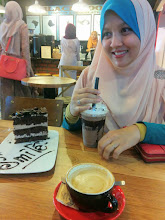These are are the titbits of Day 3 & 4 of the 'PhD on Time' course:
General:
- PhD should be the MOST FUN part of your study journey.
- You must have the THIRST for KNOWLEDGE.
- You can get the BIGGER PICTURE by browsing through online theses databases such as MYTO and ADT.
- In citations, prioritise TIER 1 and TIER 2 journals.
- Must find literature that both SUPPORTS and CONTRADICTS your ideas and expectations.
- The terms THEORETICAL and CONCEPTUAL framework are many times used interchangeably. But for those who use them differently, theoretical framework usually refers to the framework that has more depth, i.e. more complicated and of course includes theories, not just variables. However, different schools and supervisors have different definitions of the terms, so better clarify with our own supervisors.
Introduction:
- Chapter 1: Introduction --> Background to study [BS] --> Statement of the Problem [SP]--> Research questions [RQ] (should work like a funnel, i.e. from the most general (with laymen terms) to more specific ones:
- BS is like a MINI LITERATURE REVIEW [LR] where you must cite the GURUS of your field of interest to form the SP
- SP is like a mini LR to form your specific RQs.
- RQs will guide your whole research.
- In the SP, do not overclaim by saying that there have been NO studies done yet in the area you want to work on. Check via all sorts of DATABASES first and even so, use 'softer' terms, NOT 'NO'.
- RQs: There can be sub RQs as well
Research Methodology:
- Research DESIGN is NOT the same as research METHODS. But your research methodology chapter should start with your research design.
- RESEARCH DESIGN examples: Descriptive, Experimental, Correlational, etc
- There are many TYPES of TRIANGULATION, not just methodical.
- Instrumentation: ADOPT, ADAPT or CONSTRUCT
- Don't forget RELIABILITY & VALIDITY.
All in all:
- Write a REFLECTION each time after reading. PEN YOUR THOUGHTS!
- Have several BACKUPS.
- REWARD yourself when you have done some substantial work.
- READ, READ & READ
A couple of snaps that may be useful to you and me:
Criteria for adequacy in quantitative and qualitative study.
'
If you want to publish according to the different parts of your thesis:
These are NOT my ideas. Simply what I have jotted down during the course.
I believe this is just a recall for many of you, especially those who have started and graduated.
You may read more on these if you are keen to know more.
All the best peeps!
Salam & Ciao!













0 comments:
Post a Comment